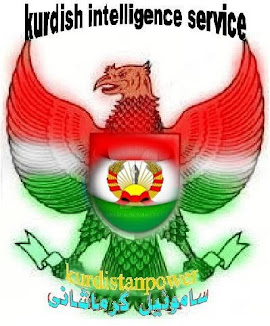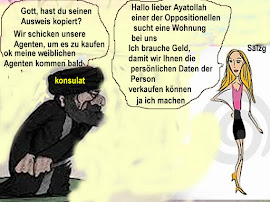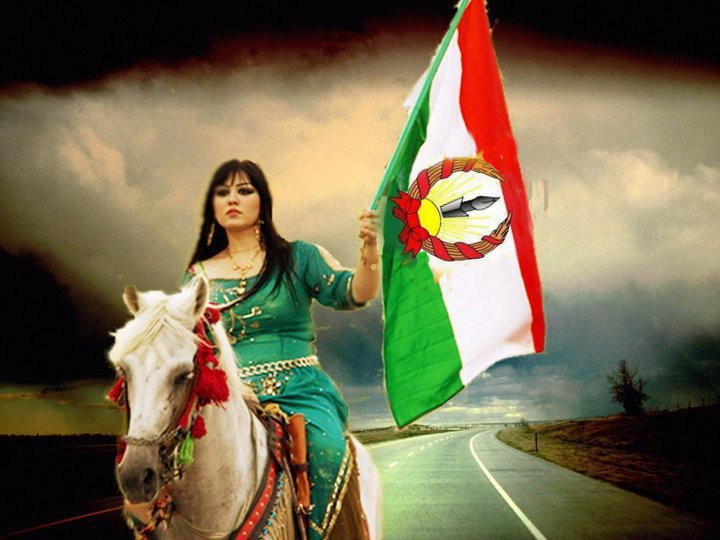Zagros, Taurus & Anatolian Highlanders (The Land of Kurda - Kurdistan)
Being the native inhabitants of their land. there are no "beginnings" for Kurdish history and people. Kurds and their history are the end products of thousands of years of continuous internal evolution and assimilation of new peoples and ideas introduced sporadically into their land. Genetically, Kurds are the descendants of all those who ever came to settle in Kurdistan, and not any one of them. A people such as the Guti, Kurti. Mede, Mard, Carduchi, Gordyene,Cardyene,Kyrti, Adianbene, Zila and Khaldi signify not the ancestor of the Kurds but only an ancestor.
Being the native inhabitants of their land. there are no "beginnings" for Kurdish history and people. Kurds and their history are the end products of thousands of years of continuous internal evolution and assimilation of new peoples and ideas introduced sporadically into their land. Genetically, Kurds are the descendants of all those who ever came to settle in Kurdistan, and not any one of them. A people such as the Guti, Kurti. Mede, Mard, Carduchi, Gordyene,Cardyene,Kyrti, Adianbene, Zila and Khaldi signify not the ancestor of the Kurds but only an ancestor.
Archaeological finds continue to document that some of mankind's earliest steps towards development of agriculture. domestication of many common farm animals (sheep, goats, hogs and dogs), record keeping (the token system), development of domestic technologies (weaving, fired pottery making and glazing), metallurgy and urbanization took place in Kurdistan, dating back between 12,000 and 8.000 years ago.
The earliest evidence so far of a unified and distinct culture (and possibly, ethnicity) by people inhabiting the Kurdish mountains dates back to the Halaf culture of 8,000-7,400 years ago. This was followed by the spread of the Ubaidian culture, which was a foreign introduction from Mesopotamia. After about a millennium, its dominance was replaced by the Hurrian culture, which may or may not have been the Halafian people reasserting their dominance over their mountainous homeland. The Hurrian period lasted from 6,300 to about 2,600 years ago.
The Hurrians-whose name survives now most prominently in the dialect and district of Hawraman/Awraman in Kurdistan- divided into many clans and subgroups, who set up city-states, kingdoms and empires known today after their respective clan names. These included the Gutis, Kurti, Khadi, Mards, Mushku, Manna, Hatti, Mitanni, Urartu, and the Kassitis1es, to name just a few. All these were Hurrians, and together form the Hurrian phase of Kurdish history.
By about 4.000 years ago, the first vanguard of the Indo-European-speaking peoples were trickling into Kurdistan in limited numbers and settling there. These formed the aristocracy of the Mitani, Kassite, and Hittite kingdoms, while the common peoples there remained solidly Hurrian. By about 3,000 years ago, the trickle had turned into a flood, and Hurrian Kurdistan was fast becoming Indo-European Kurdistan. Far from having been wiped out, the Hurrian legacy, despite its linguistic eclipse, remains the single most important element of the Kurdish culture until today. It forms the substructure for every aspects of Kurdish existence, from their native religion to their art, their social organization, women's status, and even the form of their militia warfare.
Medes, Scythians and Sagarthians are just the better-known clans of the Indo- European-speaking Aryans who settled in Kurdistan. By about 2,600 years ago, the Medes had already set up an empire that included all Kurdistan and vast territories far beyond. Medeans were followed by scores of other kingdoms and city-states--all dominated by Aryan aristocracies and a populace that was becoming Indo-European, Kurdish speakers if not so already.
By the advent of the classical era in 300 BC. Kurds were already experiencing massive population movements that resulted in settlement and domination of many neighboring regions. Important Kurdish polities of this time were all by-products of these movements. The Zelan Kurdish clan of Commagene (Adyaman area), for example, spread to establish in addition to the Zelanid dynasty of Commagene, the Zelanid kingdom of Cappadocia and the Zelanid empire of Pontus-all in Anatolia. These became Roman vassals by the end of the Ist century BC. In the east the Kurdish kingdoms of Gordyene, Cortea, Media, Kirm, and Adiabene had, by the 1st century BC, become confederate members of the Parthian Federation.



















.jpg)







































Inga kommentarer:
Skicka en kommentar